Parangolé
Manuel Raeder-
-
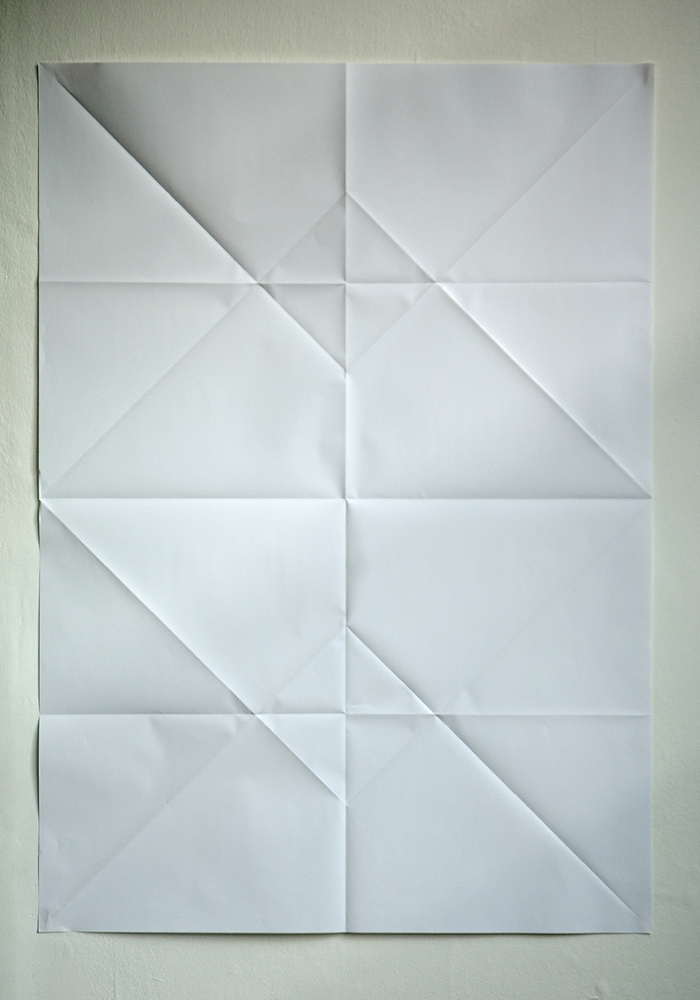
- Manuel Raeder for the Architectural Association, 2007. Photo: Tim Brotherton
-
Parangolé* is a series of works by the brazilian artist Helio Oiticica (Rio de Janeiro, 1937 — 1980) which part of it is, is a costume (partly banner) that only becomes a piece of art, once it’s woren preferably whilst dancing.
I have been interested in in Oiticica’s Parangolé* as flexible architectural elements, this can be compared to the way markets circuses and other ephemeral architectural devices function, in the sense that they don’t just have one way of use but they are open to improvisation and constant change.
“The ‘discovery’ of Parangolé* elements in the landscape of the urban or rural world is also part of ‘establishing perceptive structural relations’ between what grows in the structural grid of the Parangolé*(representing here the general character of colourstructure in environmental space), and what is ‘found’in the spatial environmental world. In the architecture of the ‘favela’, for example, there is implicity a Prangole character. The structural organicity of its constituent elements, and the internal circulationand external dismemberment of these construcitons mean that there are no abrupt transitions from ‘room’ to ‘living-room’ or ‘kitchen’, only the essential, which defines each part connecting to the other in a continuity.
The same thing occurs in another way with those ‘shacks’ used on construction sites. Likewise with all these popular cubbyholes and constructions, generally improvised, which we see everyday, also, fairs, beggars, homes, popular decorations of traditional, religious and carnival feasts, and so on. One could call all these relations ‘imaginative -structural’, being ultra-elastic in their possibilities, and in the pluridimensional relation between ‘perception’ and ‘productive imagination’ (Kant) which drives from them, inseperable and feeding off one another.
… There is, as it were, a ‘desire for a new myth’, furnished here by these elements of art; they make an interference in the spectator’s behaviour: a continuous and far-reaching interference, which could implicate the fields of psychology, anthropology, sociology and history…”
Helio Oiticica, Fundamental Bases for The Definition of The Parangolé*, 1964
* Parangolé, slang, meaning animated situation and sudden confusion and/or agitation between people.
-
-
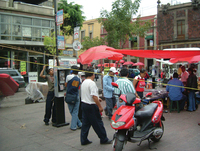
- Tarpaulins, various locations in public markets and theatres. Photo: Manuel Raeder
-
-
-
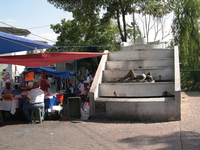
- Tarpaulins, various locations in public markets and theatres. Photo: Mariana Castillo Deball
-
-
-
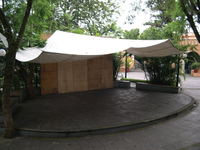
- Tarpaulins, various locations in public markets and theatres. Photo: Manuel Raeder
-
-
-
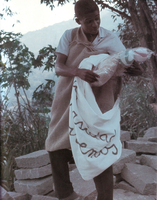
- Hélio Oiticica, Nildo of Mangueira with Parangolé P4 Cape 1, 1964
-